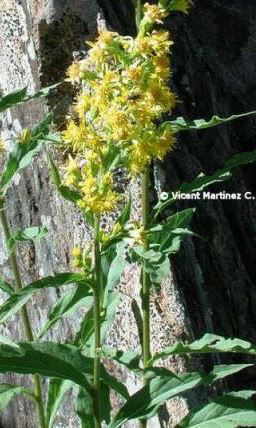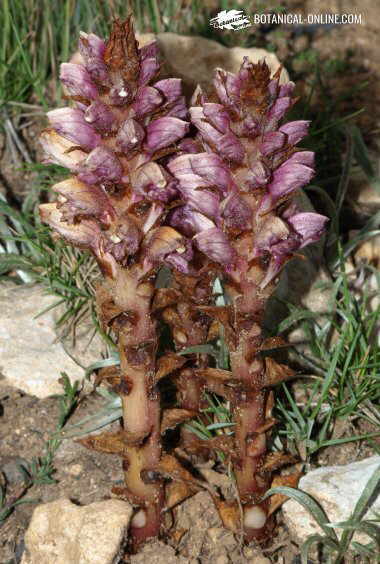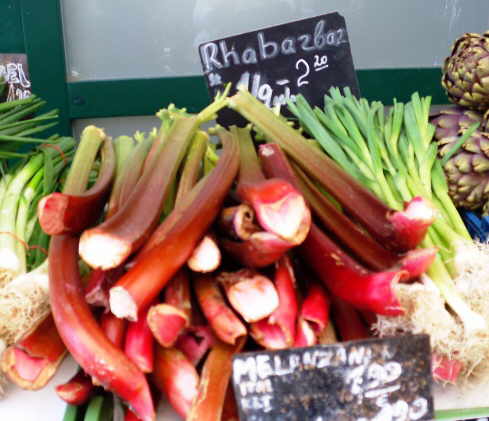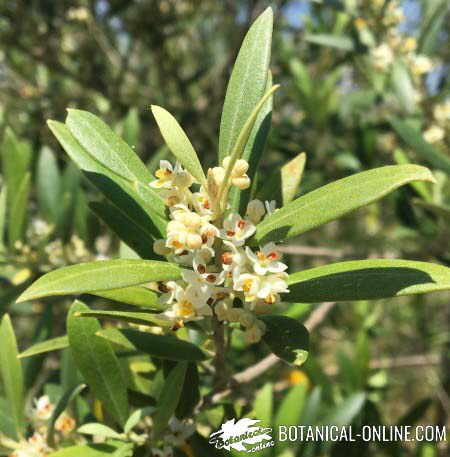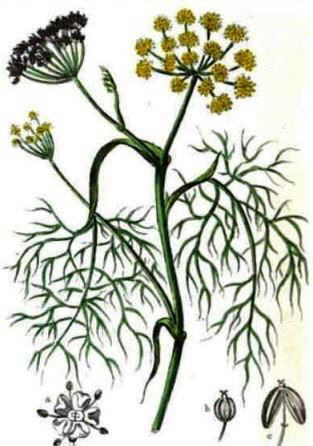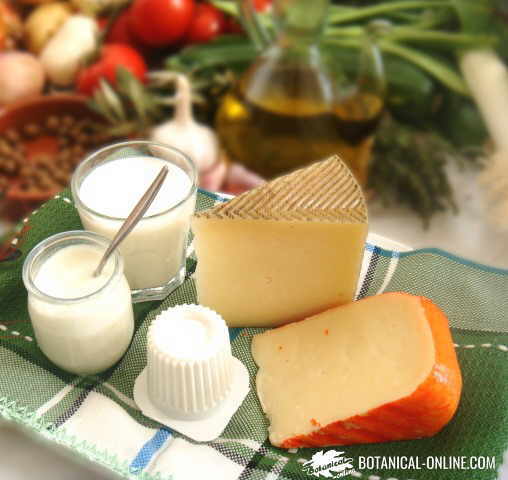Medicinal plants for the inflammation of the kidneys
Phytotherapy: Medicinal plants for the kidneys
The main function of phytotherapy in the problem of the renal infections consists in using those plants whose purpose will result in:
- Using plants with antibiotic properties that prevent the infections or that help to eliminate the microorganisms causes of the infection.
- Using antiinflammatory plants that reduce the inflammations and reduce the acute pain that is experienced in the renal colic.
- Using plants with diuretic properties that increase the production of urine which will facilitate the expulsion of the microorganisms.
Bearberry or uva ursi for nephritis
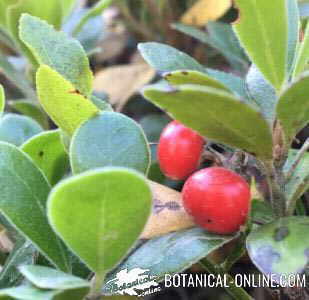
Bearberry leaves are very effective in the treatment of nephritis
Bearberry (Arctostaphylos uva-ursi) or uva ursi is one of the most common remedies used to treat urinary tract ailments. It is used primarily in cases of infections caused by bacteria. But for this to take place, it is necessary for our urine to be less acidic as possible.
This is the reason why the treatments carried out by this plant are often combined with the ingestion of bicarbonate to neutralize the acidity of urine, making it more alkaline. So it is appropriate for the treatment of diseases such as inflammation of the urethra (urethritis), of the bladder (cystitis), urinary tract irritation and acts on the need to urinate repeatedly that these urinary conditions generate.
These effects should be attributed to arbutin that becomes hydroquinone when in contact with the intestinal flora in addition to its high tannin content (about 15 to 20%) which acts on the secretions of pus that generate these diseases.
How to take bearberry for nephritis
Take one of the following preparations:
- Cold maceration for 4 hours of four teaspoons of shredded dried leaves per liter of water. Drink three glasses a day. (Avoid macerating the leaves in hot water, because this will release a high quantity of tannins)
- 20 drops of fluid extract twice a day
- Crush several leaves and take 2 teaspoons a day. (Can be mixed with honey to make it more enjoyable)
- Mixed infusion of half a spoonful of goldenrod and a half of bearberry in a glass of water for 10 minutes. A couple of cups a day.
Other medicinal plant preparations for nephritis
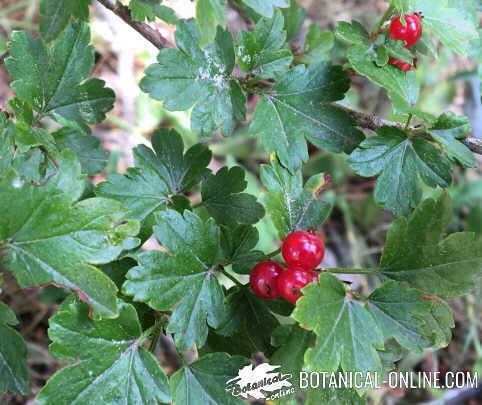
Eating acidic food, such as currants, can prevent nephritis by means of acidifying urine
Among the main curative herbs for nephritis, we can consider the following:
- Blueberry: (Vaccinium myrtillus) Like the bearberry, this plant juice acidifies the urine and prevents bacteria from developing in it. Treatments based on a daily glass of cranberry juice for two or three months have been quite effective in the treatment of this disease.Likewise, cranberries (Vaccinium macrocarpon) are used for this purpose. Also cranberries (Vaccinium macrocarpon) are used for this purpose with such a strong power as bearberry, but less irritating.
- Currants: (Ribes rubrum/Ribes nigrum) The ability of this fruit in inhibiting the growth of bacteria such as Escherichia coli, is very useful to prevent urinary tract infections and intestinal infections. Eating currant will help prevent diseases such as cystitis, urethritis, nephritis, etc.
Natural antibiotics for nephritis
Some medicinal plants contain natural antibiotic components, very useful to treat nephritis. Among them the richest ones are:
- Garlic: (Allium sativum) Being one of best natural antibiotics, the habitual ingestion of garlic can prevent the bacterial infections of the excretory system.
- Onion: (Allium cepa) like garlic, it constitutes another natural antibiotic. Eating raw onions is usually a way to boost the immune system and prevent the development of germs.
Anti-inflammatory plants for nephritis
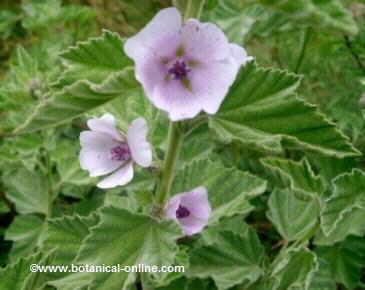
Marshmallow flowers infusion reduces kidney inflammation
- Marshmallow: (Althaea officinalis) It is suitable for the treatment of nephritis. Reduces inflammation of the kidneys, disinfects and softens the intense pain. (Infusion of a spoonful of dried flowers per cup of water. Let stand for 3 hours. Two cups a day)
- Birch: (Betula alba) For inflammation of the kidneys, prepare an infusion of one teaspoon of dried leaves per cup water. Take a cup a couple of hours after the three main meals.
- Linseed (Linum usitatissimum) With its richness in mucilages, it can help fight inflammation of the kidneys and decrease pain. (Pour a half teaspoon of linseed seeds in a glass of water for about 4 hours. Drink two glasses per day)
- Pellitoryofthewall (Parietaria officinalis) useful to treat renal inflammations or those of the urinary bladder (cystitis) since the emollient values of the mucilages that this plant contains exercise a smoothing property on the body tissues.(Two or three infusions a day of a dry couple of spoonfuls of leaves for a liter of water. This remedy can be substituted by herbal tincture. In this case we should take 40 daily drops diluted in water divided in three daily doses)
- Poplar (Populus nigra) It helps to reduce inflammation of the kidneys or urinary tract, relieves pain and reduces the infectious process (infusion of two teaspoons of dried buds per liter of water for 10 minutes. Drink two or three cups per day)
- Violet: (Odorata Viola) In inflammation of the kidneys, the use of this plant can contribute to diminish the inflammation and to expel the microorganisms that caused the infection. (Infusion of a half teaspoon of dried flowers per cup of water. Drink a cup a day)
Diuretic plants for nephritis
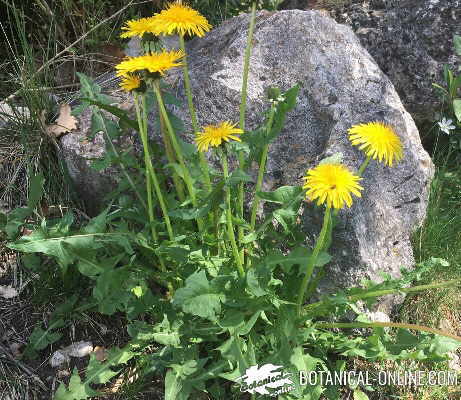
Infusion of dandelion leaves increases urination, which is very useful to treat kidney inflammation
Increasing urination is a way of preventing nephritis by means of expelling microorganism through urine and cleaning the urinary tract. We can use one of the following plants:
- Dandelion (Taraxacum officinale) this is a plant that over stimulates the production of urine, to the extent that the common Catalan name is ” pixallits” (= It pisses beds) refers to this aspect.Hence, its use is appropriate in cases where it is interesting to eliminate as much water dropsy and obesity and in those where it is essential to eliminate toxins from the blood cholesterol, uric acid, diabetes, etc.By increasing

Photo of Goldenrod flowering urine, it encourages expulsion of kidney stones (Infusion of dried leaves. Take 3 cups a day. The same infusion can also be done with the mixture of leaves and roots.
- Parsley: (Petroselinum crispum) It is one of the best diuretics it increases urination so it is useful to prevent kidney stones formation, allowing the expulsion of the sand through the urine before it has settled and compact in the form of a calculus(Decoction of one teaspoon of dried root. Let stand for one quarter of an hour and take a couple of cups a day) (Squeeze the tender plant and take a couple of tablespoons a day. juice is also sold in pharmacies and herbalists)
- Nettle: (Urtica dioica) Another plant very suitable to increase urine output so that, like parsley, it can help prevent stone formation or promote the expulsion of these when they are small.
- Goldenrod (Solidago virgaurea) or barberry (Berberis vulgaris): Medicinal plants rich in berberine, very useful for reducing kidney inflammation and purifying the blood due to their potent antiseptic properties. (Use one or the other depending on availability) (Infusion: 1 teaspoon of dried goldenrod flowers per cup, let stand for 5 minutes. Take 3 times daily) (Barberry root infusion) (Berberine supplements).
- Linden: (Tilia sp) (Mixed infusion of the mixture in equal parts of half a teaspoonfuls flowers of elder, linden tree and stems of horsetail. Drink a pair of cups a day)
- Maize (Zea mays) cornsilk constitute one of the best natural diuretics. (Decoction of 5O g by liter of cornsilk for 20 minutes. 4 cups a day)
- Lettuce (Lactuca sativa) Another recommended diuretic (Decoction to 50% of lettuce leaves during 10 minutes. Drink a couple of glasses a day)
- Cherry tree: (Prunus avium)

